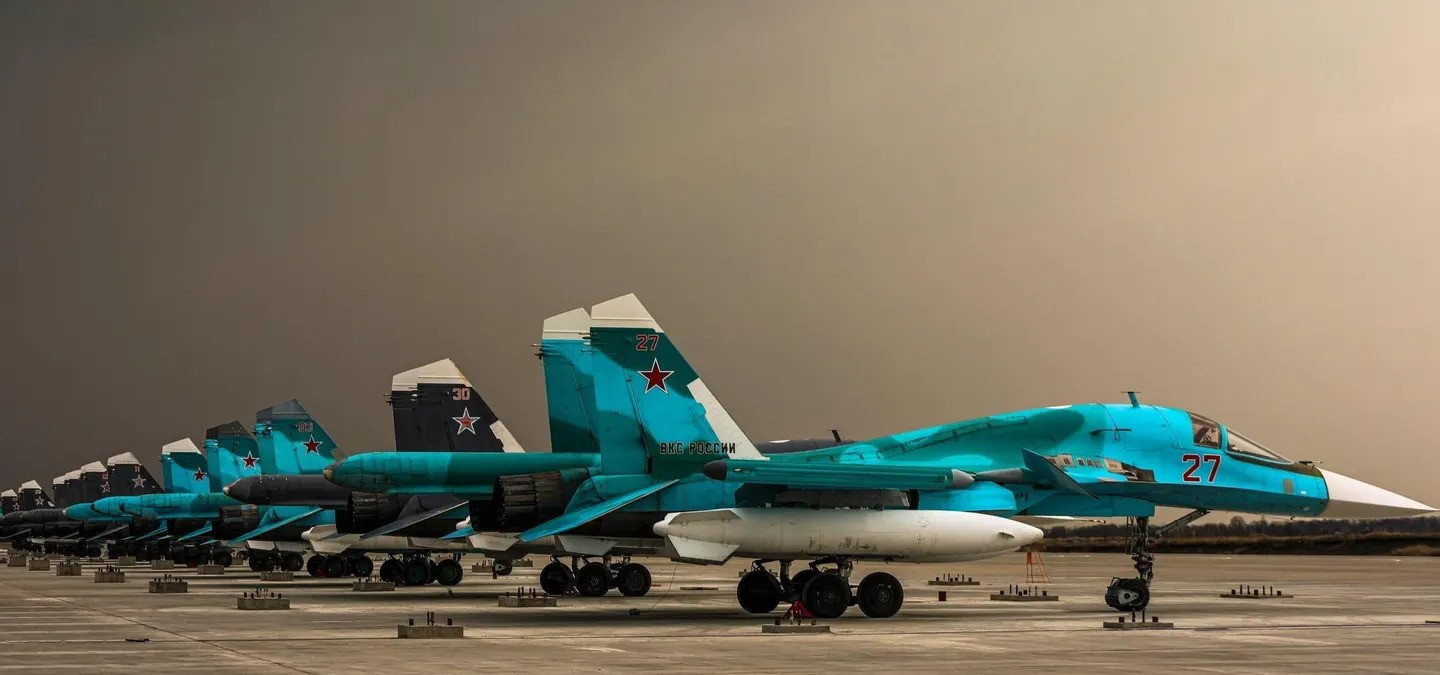David Axe with yet another disturbing report of Ukraine being hamstrung by an inadequate U.S. policy that won’t allow US-supplied weapons to attack inside Russia, even for military bases. National Security Advisor Jake Sullivan has kept this policy in place the entire war, on fears of escalation. In 2022, it was short-sighted and misguided. In 2024, it’s just absurd.
Ukrainian intelligence had identified dozens of Russia’s best fighter jets at one air base just 100 miles from the border but when they frantically asked permission to use US-made ATACMS on the military target they were denied. Once the Russians figured out what was going on they moved all the fighter jets to safer locations, and the opportunity was lost. It’s estimated that Russia has less than 100 of the Su-34s left.
The Su-34s carry KAB glide bombs, some as large as three tons, that are difficult both to detect and destroy but have a limited range of just 25 miles. The Russians use them for military targets as well as terrorist attacks on civilians.
Source: Forbes
There was a rare opportunity to deliver a major blow against the KAB infrastructure earlier this summer, when the Russian air force’s 47th Guards Bomber Aviation Regiment parked dozens of Su-34s—out of roughly 100 in service—in open at Voronezh Malshevo air base in southern Russia 100 miles from the border with Ukraine.
Voronezh Malshevo is a reasonably well-defended base, so the Ukrainians pleaded for permission to fire their best American-made Army Tactical Missile System rockets at the base. The ATACMs are almost impossible to intercept.
But the administration of U.S. Pres. Joe Biden said no. “Our policy has not changed,” Jake Sullivan, Biden’s national security advisor, told reporters last month. As before, Ukraine would only be allowed to fire ATACMS at targets in Russian-occupied Ukraine.
The Russians observed the heated diplomacy regarding ATACMS—and made a rare proactive decision to pull the Su-34s from Voronezh Malshevo and other border airfields.
“Between the second half of June and mid-July, Russian forces relocated a lion’s [share] of valuable military assets away from the border area with Ukraine,” Frontelligence Insight noted. The departure of Su-34s from Voronezh Malshevo was among “the most notable movements.”

